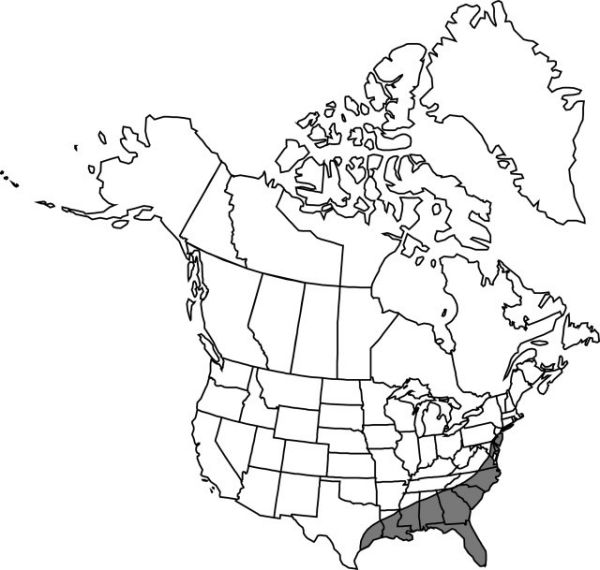Spiranthes laciniata
Orchidaceae 1: 120. 1905.
Plants 20–95 (–100+) cm. Roots numerous, spreading, mostly to 1 cm diam., slender. Leaves persisting through anthesis, to 5, basal, reduced to sheathing bracts upward on stem, spreading, linearlanceolate, keeled, 5–40 × 1.7 cm, rigid. Inflorescences: spikes loosely to tightly spiraled, 5–9 flowers per cycle of spiral, sometimes nearly secund; rachis moderately to densely pubescent, some trichomes capitate, glands obviously stalked. Flowers mostly ascending, white to cream, slenderly tubular, gaping toward apex; sepals distinct to base, lanceolate, tapering in distal 1/3, 6–10 × 2–3 mm; lateral sepals spreading; petals linear, falcate, 7–9 × 2 mm, apex apiculate or sometimes crenulate; lip yellow centrally, ovate, 6–9 × 4 mm, apical margin laciniate-dentate, crisped; basal calli incurved, long-tapered, to 1 mm; viscidium linearlanceolate; ovary mostly 5 mm. Seeds monoembryonic.
Phenology: Flowering May (Fla)–Sep (north).
Habitat: Primarily on coastal plain in swamps, marshes, meadows, dry to damp roadsides, ditches, fields, cemeteries, lawns, occasionally in standing water
Elevation: 0–50 m
Distribution

Ala., Del., Fla., Ga., La., Md., Miss., N.J., N.C., S.C., Tex., Va.
Discussion
Spiranthes laciniata is easily distinguished from S. vernalis, which it superficially resembles, by its capitate trichomes. It typically flowers later than S. vernalis where the two are sympatric.
Selected References
None.